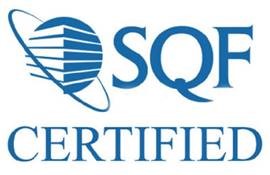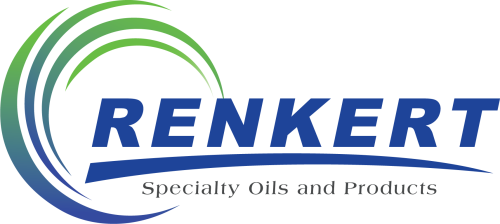At the two-day TOPCON event TPEs Unmasked! in September 2022, attendees eagerly discussed what they’re excited to see in the coming year—and their fears around topics like TPE process oil supply.
There was plenty to be hopeful about, including TPE sustainability, new processing methods, and applications, particularly the evolving needs of the automotive industry.
However, to engineer many of the applications that are driving the growth of the thermoplastic elastomer (TPE) industry, TPE process oil will have to be readily available.
Attendees wanted to know, would they be able to get their hands on enough of it in 2023?
TPE Process Oil Supply in 2023
On this point, three topics frequently come up in our conversations with customers in TPE production: demand, hurricanes, and refineries.
Demand Increasing, Particularly in the Automotive Industry
Automakers value the “soft touch” of interior moldings achieved through the use of TPE process oil, but producers must take care to meet minimum standards to reduce oil mobility and fogging.
As these standards grow ever more conservative, TPE manufacturers must take care to meet demands for interior moldings that:
- Maintain the desired “soft touch” for the life of the vehicle.
- Significantly reduce or eliminate automotive fogging due to process oil mobility.
- Do not pose the threat of VOC (volatile organic compound) emission.
- Allow molded colors that are stable.
This means rising demand for pure, very high molecular weight, low-volatility TPE process oil that resists motility.
“We have demonstrated at least 1/3 lower fogging than the currently approved oils. As the market shifts to tighter fogging standards, our oils can help keep TPE and rubber components within the new specifications. Our heavy process oils are not a source of VOCs.” – Becky Renkert, TOPCON 2022
Hurricane Season Won’t Always Be This Favorable
We also discussed how climatologists forecasted an above-average hurricane season for 2022, estimating at least 19 named storms, nine of which would be hurricanes. It ended up being “near-normal,” with 14 named storms, eight of which were hurricanes.
However, it’s important to note the extraordinary intensity of Hurricane Ian. A devastating Category 4 (out of 5) reaching winds above 111 mph, Ian was the fifth strongest hurricane to make landfall in U.S. history.
Had Ian drifted a bit further west, its effect on U.S. oil production may have rivaled that of Hurricane Katrina in 2005. So, while it’s a relief to have experienced a “favorable” hurricane season, evidence suggesting that hurricanes are getting stronger is sobering.
It’s one of many good reasons for all of us to bolster our supply chain resilience.
Refinery Overhauls Will Slow Production
Before we even get to hurricane season, we’ll have a spate of planned outages among major U.S. oil refiners. They’re planning twice as many spring shutdowns as usual, in fact, for long-overdue maintenance.
One of these operators is Phillips 66, a big producer of the Group II oils that serve as the base for heavily in-demand TPE process oils. And though they are planning carefully to minimize supply disruptions, demand remains strong.
“Refiners are going to have a hard time catching up with refinery row struggling to make a comeback.” – Bob Yawger, Director of Energy Futures, Mizuho Bank
High demand in select industries, the threat of natural disasters, and anticipated shutdowns present an obvious challenge to suppliers like Renkert Oil and to our customers. But there are ways to get ahead of them.
How to Prepare: Secondary Suppliers
As a TPE process oil customer, you can prepare for supply chain hiccups in a number of ways. One of the most effective is to develop new relationships with one or more secondary suppliers.
Primary suppliers differ in their investment in inventory. But in general, a strong primary supply partner will build up and maintain a generous stock before supply gets tight.
However, even the best primary supply partners can tap out inventory when too many supply chain challenges strike at once (such as all of the above).
Secondary suppliers can often fill the gap. Having relationships with multiple suppliers:
- Diversifies your supply points, to include areas not affected by a recent natural disaster, armed conflict, political unrest, etc.
- Deepens your access to emergency inventory in the midst of demand spikes to support ramp-ups in TPE production.
- Broadens your connections, via your secondary partners, with refineries that may not be part of your primary supplier’s network.
Add Renkert Oil to Your List of TPE Process Oil Suppliers
We are proud to be the primary TPE process oil supplier for some of the most respected manufacturers in the world. But we also take pride in our ability to support many additional companies in their time of need as a secondary supplier.
Furthermore, Renkert Oil supports many other industries through our deep inventory of specialty process oils and additional products, such as food-grade white oils, at terminals across the U.S. and Europe.
“Renkert Oil is proud to have grown to the third largest food-grade white oil producer in North America. Our Renoil food-grade oils meet or exceed NF/USP/FDA 21CFR178.3620(a) requirements. They are used in sensitive food processing, medical, cosmetic, agriculture, and many more applications. We have earned a global food safety management certification SQF (Safe Quality Foods) for our production facilities.” – Becky Renkert, TOPCON 2022
To learn more about making Renkert Oil your primary or secondary specialty oil supply partner, or to inquire about specific products, reach out today to request a consultation. We look forward to helping you improve your supply security and meet the new year with confidence.




